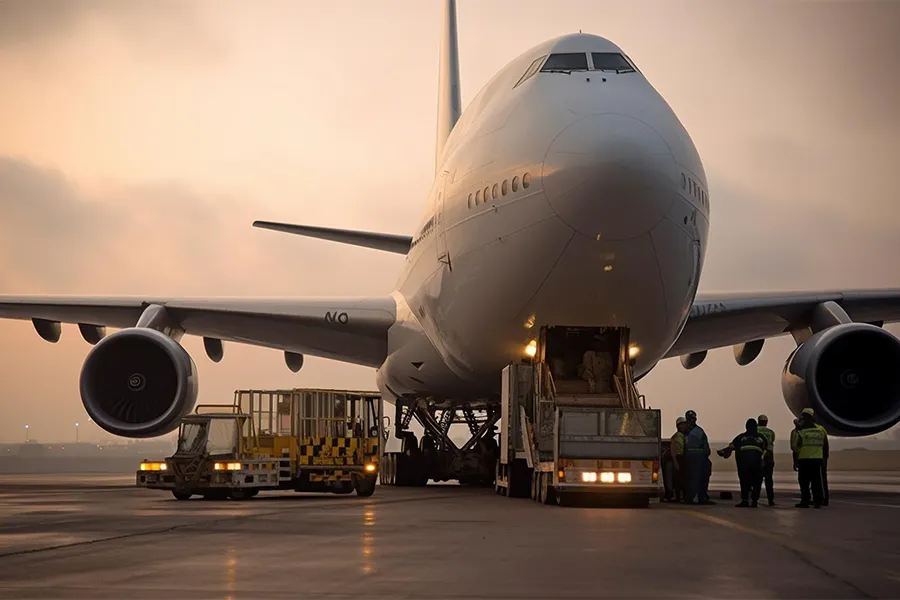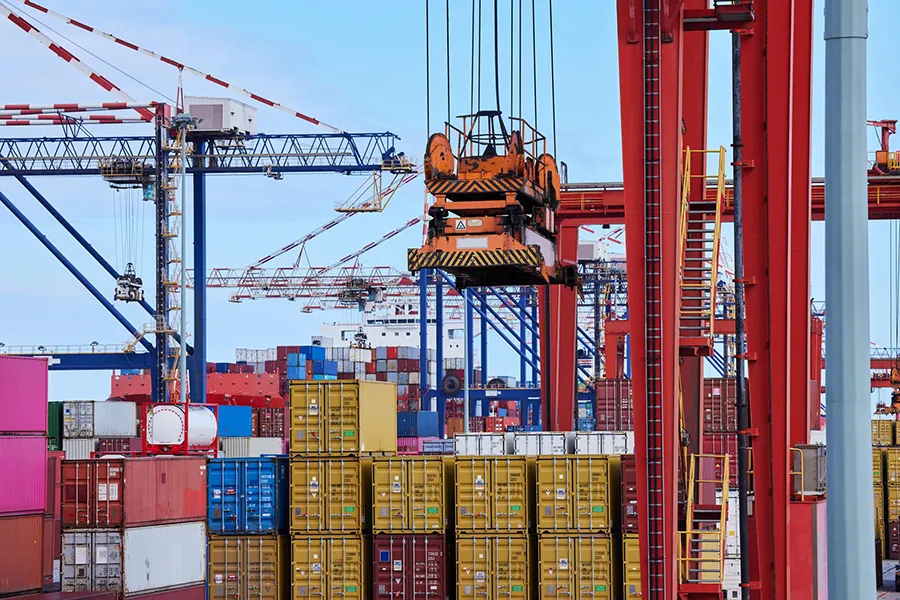How is freight to Germany done?
Freight to Germany involves the process of sending cargo from one country to Germany by air, sea and land, and has become one of the best methods of transporting excess cargo due to its various advantages. Many people looking to travel, study or immigrate to this country, or companies with business goals, will use freight services to Germany to send their goods, furniture and supplies. Choosing the right transportation method, appropriate timing, type of packaging, etc. can significantly affect the costs and safety of shipping cargo. In this article, the stages of freight to Germany and the key points you should consider for safe and cost-effective shipping of cargo are reviewed.

Benefits of Freight to Germany
Freight to Germany has become one of the most suitable methods of shipping goods due to its various advantages. People who plan to immigrate to Germany or travel to this country for a long time can use freight to Germany to safely deliver their furniture and supplies to their desired destination while complying with customs regulations. Freight also provides commercial companies with the opportunity to send their goods to their destination in large volumes or in a short period of time, or to not have to worry about sending special types of goods such as chemicals, medical equipment, and environmentally sensitive goods, etc.
In addition, freight to Germany has numerous other advantages, including:
Fast and reliable shipping
One of the main advantages of freight to Germany is the ability to send goods quickly to this country. For goods that require urgent shipping, air transportation is a very suitable option and can deliver goods to their destination in a shorter period of time.
High security in transportation
Proper packaging and the use of modern transportation equipment minimize the amount of possible damage such as impact, humidity or temperature changes and ensure the safe transportation of goods. High security in transportation is especially important for goods that are of high value or sensitive to environmental conditions.
Cost Savings
Road or rail transportation can be considered a more cost-effective option compared to other transportation methods. However, in general, it is better to consider and choose the best transportation and packaging method depending on the type of cargo, weight and dimensions of the cargo, type of packaging, shipping time, etc., and also consider customs costs.

Documents required for freight to Germany
The documents required for freight may vary depending on the conditions and type of cargo, but in general, the required documents and certificates are as follows:
- Original and copy of the sender’s passport
- Provide a photo and copy of the airline ticket
- Provide a purchase invoice
- Customs declaration and documents
- Cargo insurance certificate (optional)
- Packing list (a list of goods and supplies in your packages)
- Health certificate for some goods if required (Cargo and shipments such as food, medicines or plants require a health certificate or other valid certificates.)
Freight cost to Germany
The cost of freight to Germany is one of the main issues and concerns of immigrants, travelers, students or business companies that operate in the international transportation and logistics industry. Freight to Germany does not actually have a specific cost and will have different tariffs depending on various factors such as the type of cargo, packaging, warehousing, shipping method, etc. Here we will examine these factors in more detail:
Cargo type
The type of goods shipped is effective and decisive in the cost of freight to Germany. Each of the commercial goods, furniture or personal belongings, industrial equipment, special and sensitive cargo, requires different packaging and transportation methods, and as a result, their freight costs will not be the same. In general, the cost of freight such as household furniture or personal belongings is lower than commercial and industrial cargo.
Cargo weight and dimensions
The weight and dimensions of the cargo are also determining factors in the cost of freight, and the heavier and bulkier the cargo, the higher its transportation cost.
Transportation Methods
Freight to Germany is carried out by three main methods of transportation: air, sea and road, each of which has its own advantages and disadvantages, as well as different costs. For example, air freight is faster and safer, but usually has higher costs and is suitable for light loads or urgent shipments.
Packaging Costs
Proper and standard packaging for freight to Germany is of great importance and should be such that it protects the goods from physical damage and environmental changes such as humidity or temperature. Also, special goods such as chemicals or sensitive equipment require special packaging and, as a result, involve higher costs.
Customs fees
Every item that enters Germany must pass through customs and pay the relevant customs duties and taxes based on its type and value. For commercial cargo, customs fees include value-added tax, import duties and customs inspection fees. Personal cargo also involves some customs fees, but these costs are generally much lower than for commercial goods.
Delivery time
Delivery time also affects the cost of freight, and faster transport such as air freight or express shipping will have a higher tariff compared to sea or road transport.
Shipping prices to different cities in Germany
The destination city in Germany also affects the cost of shipping, and each of the different cities in Germany has a different distance and, as a result, will have a different air freight shipping price. To send cargo to different cities in Germany, it is better to examine the services of different shipping companies in more detail and make the best choice for sending your cargo to Germany.

Important points for freight to Germany
For freight to Germany, it is necessary to keep in mind the following important points:
- Apply for freight about a week to ten days before the shipment time and contact our experts at Saina Express. In addition, consider the days when the customs office at Imam Khomeini Airport is closed.
- For freight to Germany, refer to reputable companies with air cargo transportation licenses.
- Before taking any action, it is better to check the customs regulations, taxes on various goods, and the list of prohibited goods for freight to Germany and consult with a customs consultant in this regard.
- Providing incorrect or incomplete documents and information will cause delays or possible problems in the freight process, and it is necessary to be careful in completing the relevant documents, licenses, and information.
Summary
The various stages of freight to Germany must be carried out accurately and planned so that the shipment is carried out safely, quickly, and at the lowest possible cost. Choosing a shipping method, monitoring customs fees, transporting special cargo, type of packaging, etc. are among the factors affecting the final cost of freight to Germany.
Meanwhile, reputable international shipping companies such as Saina Express can help you in all stages of freight to Germany. Based on the appropriate experience and knowledge in this field, Saina Express offers various consulting services, standard packaging, and selecting the best freight methods in a professional manner.
Using advanced and up-to-date systems and methods, this company ensures that your cargo arrives at its destination safely and on time. For more information and an accurate cost estimate, you can contact our experts at Saina Express and stay in touch with us.

